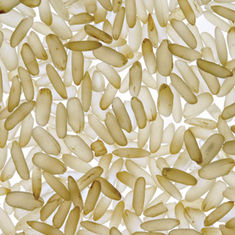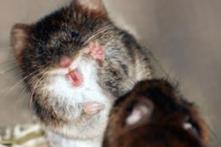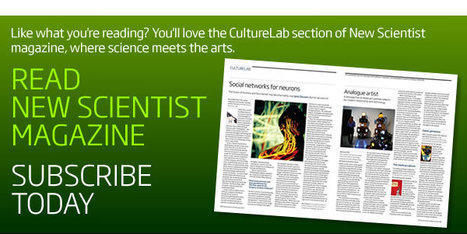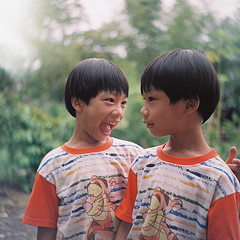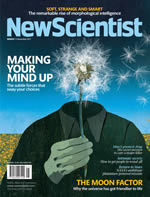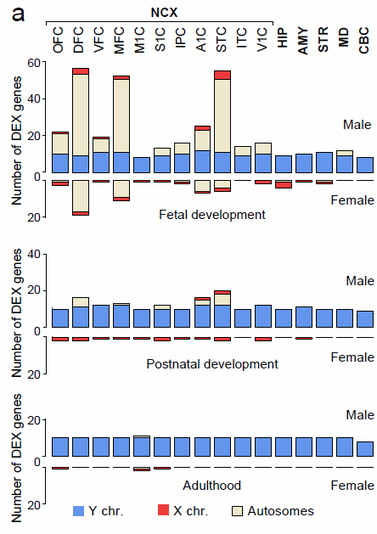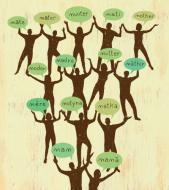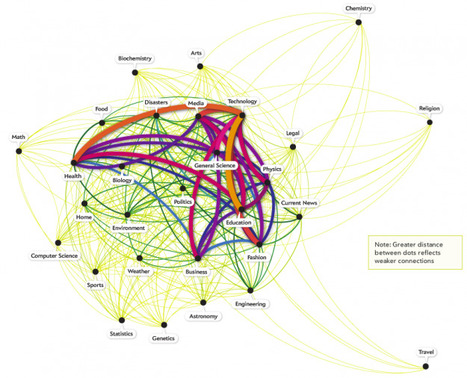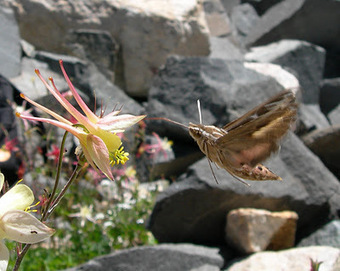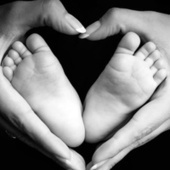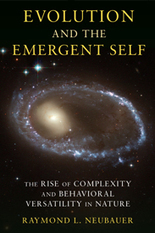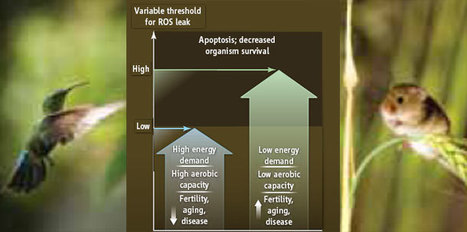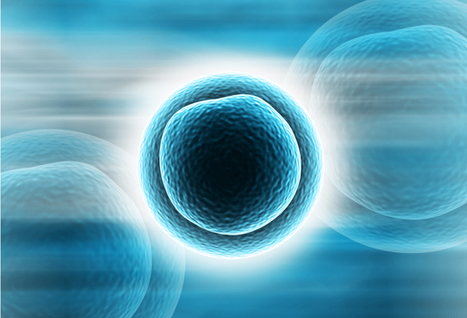(AP) -- Restaurants around the world will soon use new DNA technology to assure patrons they are being served the genuine fish fillet or caviar they ordered, rather than inferior substitutes, an expert in genetic identification says.
Get Started for FREE
Sign up with Facebook Sign up with X
I don't have a Facebook or a X account


 Your new post is loading... Your new post is loading...
 Your new post is loading... Your new post is loading...
Using stem cells, University of Florida researchers have connected muscle fibers to spinal cord tissue, which is essential to the brain's ability to control muscle movement. The junction also plays an important role in Lou Gehrig's disease, spinal cord injury and other life-threatening conditions. "With further development, the team's techniques could be used to test new drugs or other treatments for these conditions." Further down the line, the research could revolutionize how all drugs are tested.
“You are what you eat.” The old adage has for decades weighed on the minds of consumers who fret over responsible food choices. Yet what if it was literally true? What if material from our food actually made its way into the innermost control centers of our cells, taking charge of fundamental gene expression?
Our values as a society will determine which psychopharmaceuticals and (down the road) which genetic enhancement technologies we choose to develop and how we use them.
Researchers have shown that ABCC9, a known genetic factor in heart disease and diabetes, also influences the duration of sleep in humans.
Researchers at Sweden's KTH Royal Institute of Technology say they have found further proof that the wolf ancestors of today's domesticated dogs can be traced to southern East Asia -- findings that run counter to theories placing the cradle of the canine line in the Middle East.
(PhysOrg.com) -- New research from The Australian National University has shown how genetic variation persists through generations, rather than being bred out in an evolution towards a ‘perfect type’.
If you could pre-programme the genes of your child, what would you wish for? A healthy child, free from risk of disease, sure. But what about other genetic tweaks that could provide your offspring with a kick-start in life?
A mutation that appeared more than half a million years ago may have helped humans learn the complex muscle movements that are critical to speech and language.
If the human brain – with 100 billion neurons forging trillions of connections – were not complicated enough, new research suggests that every neuron may have its very own genome.
Add McConnell's observation to the overwhelming evidence that epigenetic modifications influence traits such as obesity, or the suggestion that the sequences of many genes are subtlty altered after being transcribed, and you get the sense that organism are not content to stick with the genome they were born with.
The gene appears to be more common in depressed people who have attempted suicide than in those who have not... 
Noah Schmidt's curator insight,
May 23, 2013 9:56 AM
Biology does seem to be a factor in the issue of suicide. From research, most people who attempted suicide were also found to have the gene called RGS2. 43% of the people who attempted suicide had this gene.
Knocking out a gene in muscles allows mice to run twice as far – targeting the same gene in their fat cells prevents them developing type-2 diabetes...
Despite vast differences in the genetic code across individuals and ethnicities, the human brain shows a “consistent molecular architecture.” The finding is from a pair of studies that have created databases revealing when and where genes turn on... |
Languages, like genes, can tell evolutionary tales...
Now a small contingent of researchers, many of them evolutionary biologists who typically have nothing to do with linguistics, are looking at language from in front of their computers, using mathematical techniques imported from the study of DNA to wring scenarios of language evolution out of huge amounts of comparative speech data.
The results revealed which subjects were strongly and weakly associated. Chemistry was linked to almost no other science. Biology was linked to almost all of them. Health was tied more to business than to food. But why did fashion connect strongly to physics? And why was astronomy linked to genetics?
Congratulations! you’re eating the world’s first human(e) hamburger! ~ Innovation Investment JournalNo dead cows, just real, sustainable beef, made with nothing but yummy stem cells and a touch of magic! All yours for a sizzling €250,000 each. And they’ll get cheaper and cheaper with every passing year (can we call that Moo’s law?)
This article arises from Future Tense, a collaboration among Arizona State University, the New America Foundation, and Slate. Future Tense explores the ways emerging technologies affect society, policy, and culture.
A new study of flower petals shows evolution in action, and contradicts more that 60 years of scientific thought.
From
io9
Researchers have known for some time that women who experience weakened heart function in the months before and after childbirth (a condition known as peripartum cardiomyopathy) recover more quickly than any other group of heart failure patients.
Evolution and the Emergent Self is an eloquent and evocative new synthesis that explores how the human species emerged from the cosmic dust. Lucidly presenting ideas about the rise of complexity in our genetic, neuronal, ecological, and ultimately cosmological settings, the author takes readers on a provocative tour of modern science’s quest to understand our place in nature and in our universe. Readers fascinated with “Big History” and drawn to examine big ideas will be challenged and enthralled by Raymond L. Neubauer’s ambitious narrative.
A mutation that appeared more than half a million years ago may have helped humans learn the complex muscle movements that are critical to speech and language.
Virtually all organisms with complex cells—better known as eukaryotes—have at least two separate genomes. The main one sits in the central nucleus. There’s also a smaller one in tiny bean-shaped structures called mitochondria, little batteries that provide the cell with energy. Both sets of genes must work together. Neither functions properly without the other.
Scientists have discovered that a gene that influences empathy, parental sensitivity and sociability is so powerful that even strangers observing 20 seconds of silent video identified people with a particular genetic variation to be more caring and...
Scientists presented new research demonstrating the impact life experiences can have on genes and behavior. The studies examine how such environmental information can be transmitted from one generation to the next -- a phenomenon known as epigenetics. This new knowledge could ultimately improve understanding of brain plasticity, the cognitive benefits of motherhood, and how a parent's exposure to drugs, alcohol, and stress can alter brain development and behavior in their offspring.
Among the most fundamental challenges facing the scientists will be developing new computer models that more accurately predict the behavior of cells in the laboratory. Scientists can already program individual cells to complete certain tasks but scaling up to create a larger organism is trickier. |





